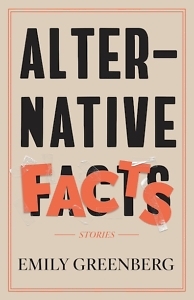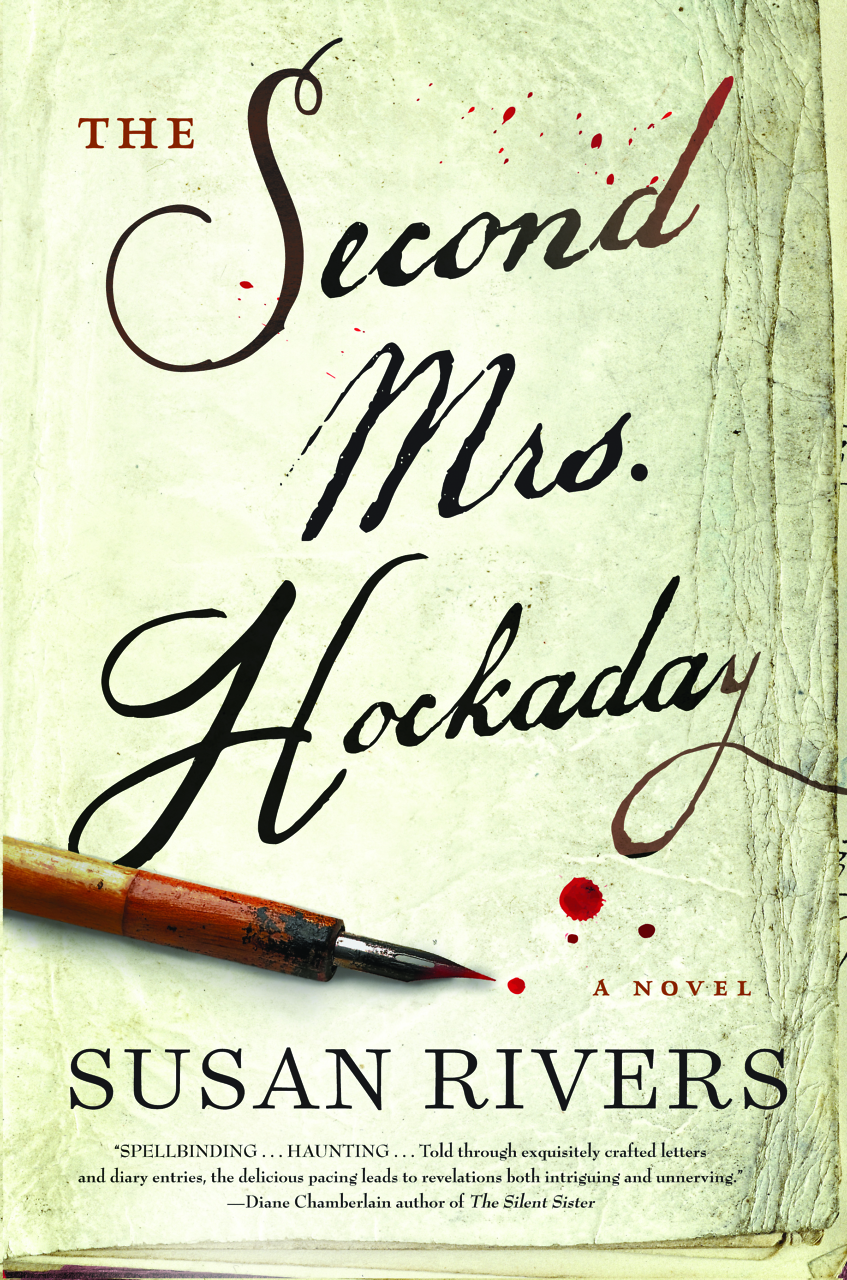Just the Facts
Emily Greenberg’s debut story collection takes a brilliant, bonkers look at the nature of truth
In our increasingly fragmented culture, short stories — discrete, brief, manageable — seem like an ideal form of fiction, especially for those forced to acknowledge their shrinking attention spans. But for me, the inverse feels true. The more fractured the world around me, the more I long for deep, immersive worlds, characters I can invest in, stories that stretch across generations. Imagine my surprise, then, when Emily Greenberg’s debut Alternative Facts absolutely blew me away. Greenberg’s story collection is equal parts brilliant and bonkers, and I defy anyone who argues against such a combination.

The title story zooms in on the internal monologue of Kellyanne Conway, former advisor to President Trump, opening in the moments just before she punches a man at an inaugural event:
Maybe the two silver-haired, tuxedo-clad men were not really about to fight, Kellyanne thought, observing that no, they were not now puffing their concave, emphysemic chests and raising their voices like men did when they fought, nor were they folding their Mnuchin imitation eyeglasses and placing them on a nearby white-clothed cocktail table …
The passage proceeds from there, a dizzying six pages of nonstop thought, a single breathless sentence. Along the way, Conway provides nuanced descriptions of the scene and her impressions of it (“completely bored but feigning interest in her husband’s small-stakes small talk with small-dick party donors”), each turn proving the unmistakable genius of Greenberg’s writing because every hyper-descriptive moment is, in Kellyanne Conway’s mind, something that did not happen.
Every cascading thought exposes some new negotiation with the truth: “she had not felt her chest swell with pride”; “she was not now really putting her children at risk”; “the president had not really done those things or said those things because he had said and done them so long ago that he was no longer the same person”; the whole story was just “words upon words upon words, words tumbling from your lips so quickly you had no idea what you were saying until you said it but maybe if you kept talking you could inch closer to it, could circle it as these two tuxedo-clad men were circling each other.”
Brilliant. Bonkers. I rest my case.
 The collection turns from Conway to behavioral psychologist B.F. Skinner in the cleverly constructed “Black Box,” which builds a fictional biography around a series of vignettes, each depicting some type of box holding a significant aspect of his life. Readers will cringe through “Lost in the Desert of the Real” as they bounce between the terror felt by those in Hawaii after the 2018 false missile alert and the absurdities of the governor’s attempt to resolve the situation via social media. And the closing story, “The Author and the Heiress,” wherein Paris Hilton falls from a helicopter onto reclusive author Thomas Pynchon’s fire escape, leading to a night of underground escapades and lives transformed — well, whatever you might think this story is doing, you’re probably not even close.
The collection turns from Conway to behavioral psychologist B.F. Skinner in the cleverly constructed “Black Box,” which builds a fictional biography around a series of vignettes, each depicting some type of box holding a significant aspect of his life. Readers will cringe through “Lost in the Desert of the Real” as they bounce between the terror felt by those in Hawaii after the 2018 false missile alert and the absurdities of the governor’s attempt to resolve the situation via social media. And the closing story, “The Author and the Heiress,” wherein Paris Hilton falls from a helicopter onto reclusive author Thomas Pynchon’s fire escape, leading to a night of underground escapades and lives transformed — well, whatever you might think this story is doing, you’re probably not even close.
The story most removed from American pop culture is “From the Eyes of Travelers,” which draws upon the 2016 assassination of Russian ambassador to Turkey Andrei Karlov and the experience of Burhan Ozbilici, a photojournalist with the Associated Press. Every story in the collection demonstrates Greenberg’s considerable skill and wide-ranging intelligence, but this one bypasses some of the humor, choosing instead to focus on the dilemma facing anyone responsible for documenting the news:
It was just like I remembered and just like I had tried to forget, the best photo I’d ever taken: haunting but beautiful, devastating but brilliantly composed. This is the key thing. Much as I try to pretend otherwise, there’s a flaw in all my photos. They do not just tell a story. They show a point of view. They have always shown a point of view.
Landing midway through the book, “From the Eyes of Travelers” grounds the collection, keeps it from floating free from truth entirely. By tethering to the traditional structure in this way, Greenberg reminds readers that each story, however unconventional, reflects a truth.
Despite their fragmented nature, each story contributes to a greater whole, creating a cohesion that makes this collection a solid answer to the fissures of the day. Emily Greenberg’s prose is electric, and everything around it seems to spark as a result. I cannot lie: Alternative Facts is a tremendously good book, and Emily Greenberg is a writer to watch.

Sara Beth West is a librarian and a freelance writer focusing on book reviews and author interviews. In addition to Chapter 16, publications include Kirkus, Shelf Awareness, BookPage, Southern Review of Books, and more. She lives in Chattanooga.


